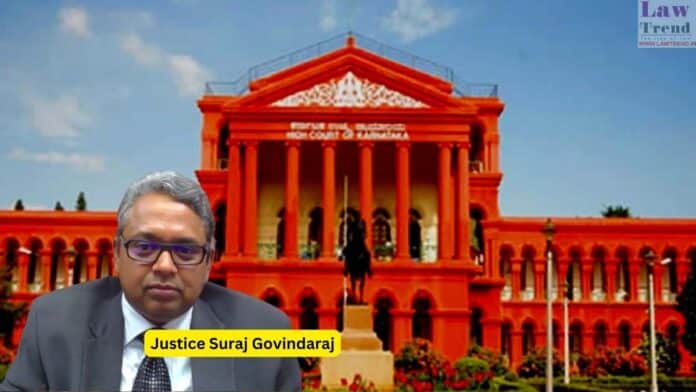The High Court of Karnataka has ordered the reinstatement of a workman with backwages who was dismissed from service while there was an ongoing dispute under the Industrial Disputes Act between him and the company.
The HC upheld a Labour Court order and said, “The Labour Court having decided the issue by taking note the fact of the workman having been dismissed from service during the pendency of the proceedings before it, no justification having been made as regards the order of dismissal, the Labour Court has rightly come to a conclusion that the dismissal was improper and directed the reinstatement of the workman with backwages.”
The HC single-judge bench of Justice Suraj Govindaraj also said when there is a dispute before a Labour Court, it has the powers to decide all matters including setting aside orders of dismissal.
“When disputes are pending before the Labour Court, the Labour Court could adjudicate all incidental matters relating thereto and relating to the industrial dispute which could include the setting aside the order of dismissal directing the reinstatement and ordering the backwages,” it said.
The dispute was between Mulberry Silks Ltd (Earlier known as Mulberry Silk International Ltd) and N G Chowdappa, an employee.
A “domestic” enquiry against Chowdappa found him guilty of misconduct and he was dismissed from service on August 6, 2003. Chowdappa and four other employees who were dismissed, challenged this before the Labour Court.
While the case was pending, the other workmen settled their claim with the company in 2008.
The Labour Court case continued only with regard to Chowdappa. It allowed his application ordering for his reinstatement on August 27, 2009. The company challenged this before the HC in 2009 and the Court gave its judgment on February 20, 2023.
“The dismissal of the respondent (Chowdappa) when the dispute was pending is a clear violation of Sub-Section (2) of Section 33 of the Act entitling such workmen to continue to be in employment notwithstanding the order of dismissal or discharge. Without such permission having been sought for and obtained, the order of dismissal is to be treated non-est and never to have been passed,” the Judgment said.




